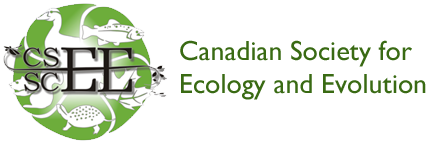Postdoctoral position, McGill University and NSERC ResNet
Join our team working to map nature’s contributions to people in Canada! Canada has ambitious conservation goals, but it is largely lacking the national-scale data and models of the systems that provide those benefits, tools that are necessary to monitor change and prioritize actions, and locations for conservation.
This postdoctoral position, which is part of NSERC ResNet, is supervised by Dr. Elena Bennett, in collaboration with Dr. Rich Sharp at Spring and Dr. Becky Chaplin-Kramer at WWF. The postdoc will be based at McGill’s Macdonald Campus in Montreal. The successful candidate should expect to meet with Dr. Bennett weekly, and with Dr. Sharp and Dr. Chaplin-Kramer as needed. The candidate will also work closely with the ResNet synthesis team of graduate students, postdocs and professors.
The successful candidate will start as soon as possible, and the initial position will run until June 2025, with a possible one-year extension. The successful candidate will build new Canada-specific maps and models of ecosystem services (ES), and will test how these maps can answer a variety of research, management, and policy questions. The postdoc may also get involved with some aspects of platform development for a map viewer and analysis tool.
Our goal is to improve current national ES layers and expand ES data and maps for Canada. While initial layers exist for a small handful of ES across Canada (for example, Mitchell et al. 2021) and additional projects have mapped other ES globally (e.g., Chaplin-Kramer et al. 2019; Chaplin-Kramer et al. 2022), layers for many key ES are currently not available for Canada, meaning that conservation decisions are not fully informed by ES information. Several recent policy initiatives need working solutions for assessing and monitoring ES across Canada, including, for example, Canada’s plans to meet the 30x30 target of the Kunming-Montreal Global Biodiversity Framework, and the Canadian Census on Environment.
This project would focus on adapting global (and perhaps some local) ES modeling approaches to Canada with national data. In particular, it will focus on effectively and accurately quantifying the capacity of ecosystems across Canada to supply a range of ecosystem services, the human demand for these different benefits, and the actual delivery of ecosystem services to people. Additional work might focus on using these maps and models for diverse research projects, including mapping future ES provision under a variety of land use change scenarios, identifying multifunctional areas, or areas with high potential for restoration or conservation.
We are interested in mapping ES layers such as: hunting, coastal flood protection, water purification, crop provisioning, carbon storage for climate regulation, soil erosion control, wild food, cultural use of wild lands such as for gathering, aesthetic beauty, recreation, pollination, and other ecosystem services. We recognize that not all of these ecosystem services will be mappable, and that only some components of them are valuable in map format; the list is intended primarily to give a sense of what we are interested in.
The successful postdoc will have demonstrated excellent skills in large-scale (national, global) ES mapping and modelling, GIS and remote-sensing, and excellent writing skills. Familiarity with python and experience working with local-level data and models would also be an asset. Annual salary will be between $50,000 and $65,000, depending on experience, with the usual benefits allocated to postdoctoral scholars at McGill University.
To apply, please send the following information to resnet.nrs@mcgill.ca:
- A cover letter of no more than two pages that clearly describes your interest in the project and the position, and why you are the right fit for this role.
- A list of three people who can write letters of reference, with their contact information, in case you are short-listed.
- A Curriculum vitae.
We plan to begin reviewing files February 5; the position will stay open until it is filled.
Only short-listed candidates will be contacted.
